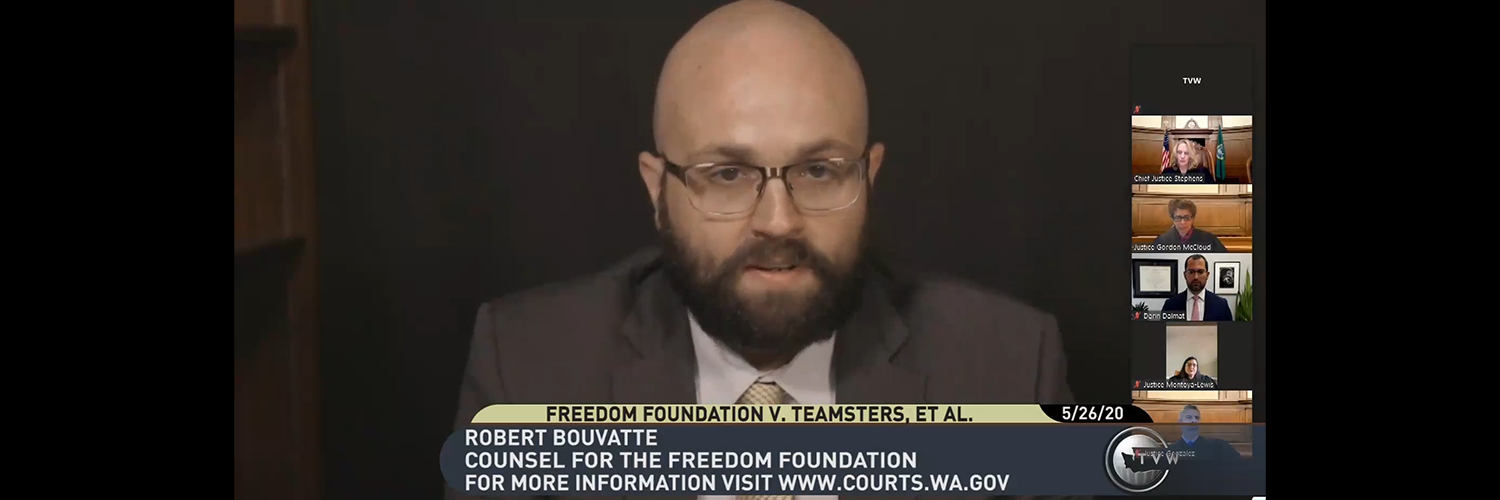Earlier this week, Freedom Foundation attorney Robert Bouvatte argued before the Washington State Supreme Court in defense of a state law authorizing individuals to file enforcement actions against political committees that violate the Fair Campaign Practices Act (the “FCPA”) if the state attorney general and prosecuting attorneys fail to do so.
The law was approved by voters in a 1972 ballot measure, but legislators — demonstrating their customary respect for the will of the people — have been trying to overturn it ever since.
The issue here began as several different citizens’ actions against various union entities (Teamsters 117, SEIU 775 and two of its national PACs, COPE and the Political Education & Action Fund) that have clearly violated the same campaign finance laws everyone else is subject to when they enter the political arena.
Teamsters 117, for example, told the IRS it is filing in Washington state to avoid federal tax and disclosure requirements. But, in fact, the union did no such thing — even though it gives tens of thousands of dollars annually to political candidates and causes.
In the trial courts, the unions argued a creative misinterpretation of the statute that would require the individual to file a citizen’s action within a mere 10 days after giving to the state a second notice that the political committee violated the FCPA.
Never mind that the Legislature specifically enacted a two-year statute of limitations for citizen’s action, or that lower courts interpreting the statute had said that the citizen cannot act within that same 10 days state officials have to act.
In their haste to put a halt to the Freedom Foundation’s citizen’s enforcement actions — however temporarily — the trial courts accepted this argument (even as they acknowledged its overwhelming practical difficulties and the “clunky” language on which it is based).
It’s always difficult to predict how courts will rule, but the Supreme Court’s questioning suggested several members are skeptical of the unions’ position. For example, while the unions have insisted the “plain language” of the statute requires their bizarre result, one justice noted the provision at issue was “incurably ambiguous” — meaning this justice, at least, will consider how much more logically the Freedom Foundation’s interpretation works in practice than the unions.’
Other justices peppered the unions’ counsel with questions about the absurd logistics that would result from their interpretation of the statute, eventually reducing the unions’ opposition to, “We respectfully disagree, your honor.”
The court hardly bothered to address the unions’ argument that the Freedom Foundation’s utilizing the citizen’s action procedure meant that it could be sued for improperly enforcing the statute, just like a state prosecutor — except to express yet more skepticism about this position.
At the end of the day, this case is about whether the state of Washington still wants to subject the decisions of its officials to a citizen’s check on their power, or whether the state no longer believes elected officials may sometimes be wrong.
With everything going on around us, the Freedom Foundation thinks it especially important for the Supreme Court to remind the political branches that they ultimately answer to the sovereign people.











